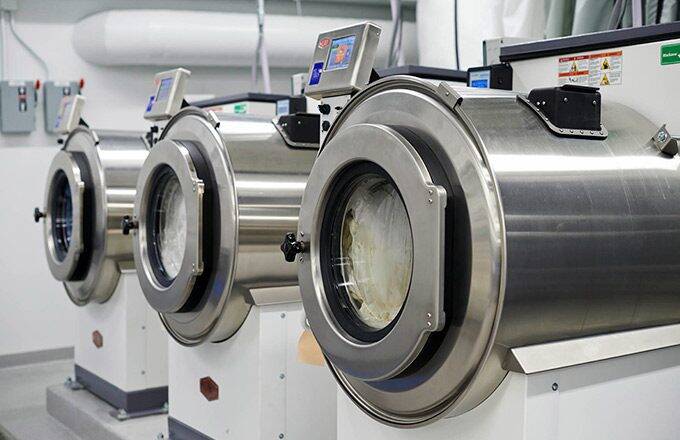January 22, 2020
Redefining Hotel Luxury for a New Generation of Lux Travelers

According to Bain & Company’s 2018 Luxury Goods Worldwide Market Study, the luxury hospitality segment experienced 5% growth in 2018 and expects 3-5% continued growth per year through 2025. Noted in the study, one macro trend that is shaping the future of luxury is the age of luxury consumers. Luxury consumers are getting younger, and brands are investing considerable resources to better understand how to appeal to this influential consumer group.
Bain’s study reveals Generation Y and Generation Z accounted for 47% of luxury consumers in 2018. During the 2019 International Hotel Luxury Association’s (IHLA) Inspire Summit, Generation Y (also known as Millennials) was a key topic of discussion. Generation Y represents today’s most influential traveler, and their desires and expectations are redefining the luxury travel experience.
Millennials are curious travelers who want to discover something new. They do not want a common experience; rather they want a transformative experience. During a time when quality and service have become table stakes, localization, personalization, and authenticity have become key drivers for today’s traveler.
Luxury Hospitality Meets HENRY: High Earners Not Rich Yet
A segment of Generation Y that is predicted to have the greatest influence on luxury hospitality is coined the HENRY. HENRYs are millennials who are “High Earners Not Rich Yet” consumers. They have a yearly income between $100,000 and $245,000 and make up 30 million American households, according to Pamelia Danziger, who has studied consumer behavior trends for luxury brands and shares some of her findings in “Meet the HENRYs: Millennials that Matter Most for Luxury Brands.”
Danziger notes HENRYs are more educated, more informed, and are setting the trends of lower income millennials, which commands our attention, considering Generation Y will be the key consumer segment driving the economy until 2040, according to Deloitte’s Global Millennial Study.
HENRYs tend to have careers in technology, finance, healthcare, and business, and take pride in ownership—but not in material goods. Rather, pride in being in the know. HENRYs maintain some of the same values as their parents; however, the way in which these values are manifested are quite different.
Standard Textile Home Plush Bath Towels (Lynova) in White
Beyond Quality… Sustainability, Too
For example, luxury consumers value high quality. While Generation Y, particularly HENRYs, may also value high quality, they desire a connection to where a product is made and are interested in knowing how the people making the product or providing a service are being treated. They also want to know that the brand in which they invest their money in is giving back to society and conducting ethical, sustainable practices.
For HENRYs, success is more than traditional accomplishments; rather, as Danzinger notes, HENRYs are driven to accomplish something that has greater meaning. For this up-and-coming affluent consumer segment, people and mindset define luxury.
Addressing the Consumer Shift for Hospitality Luxury
Luxury hospitality has clearly taken notice which has led to new business models, new management strategies, and new competitors. This paradigm shift in the luxury consumer has driven legacy brands to consider how to appeal to Generation Y consumers. An example is Standard Textile launching Standard Textile Home. For years, hotel guests who have enjoyed a positive sleep experience have contacted Standard Textile by phone to purchase bedding so they can repeat their hotel experience at home. Since launching Standard Textile Home, the bedding which has proven most desired is Centium Satin™, a premium bedding collection that carries with it a strong sustainability story.
Standard Textile Home Sateen Duvet Set (Centium Satin) in Flint Gray
Luxury will continue to be redefined by Generation Y and HENRYs as they become the dominant force in the luxury market. This redefinition of luxury will require brands to turn their product into an experience and activate values in a way that fits into Generation’s Y future. As the traditional pillars of luxury evolve, we will see new disruptive ways of capturing the attention of this new generation of consumers. For a company with a reputation for forward-looking innovation, the best is yet to come.
Related Content

Hotel Laundry 101: How to Keep your Laundry Running Smoothly
Our top tips to keep your hotel laundry running smoothly despite labor shortages and inexperienced staff.

Housekeeping Tips: How to Make Hotel Beds Faster
Any opportunity to speed up the housekeeping process and make the life of a housekeeper easier is a welcome improvement. That’s why today’s housekeeping tips center around one of the most significant tasks for housekeepers – how to make hotel beds faster.

Revitalize Rooms for the Bright New Year
Ready to hit the refresh button at your hotel? Need some easy, affordable ways to get ready for guests to arrive in 2021? We’re here to help. Here are three easy to implement, affordable ideas to help you prepare.